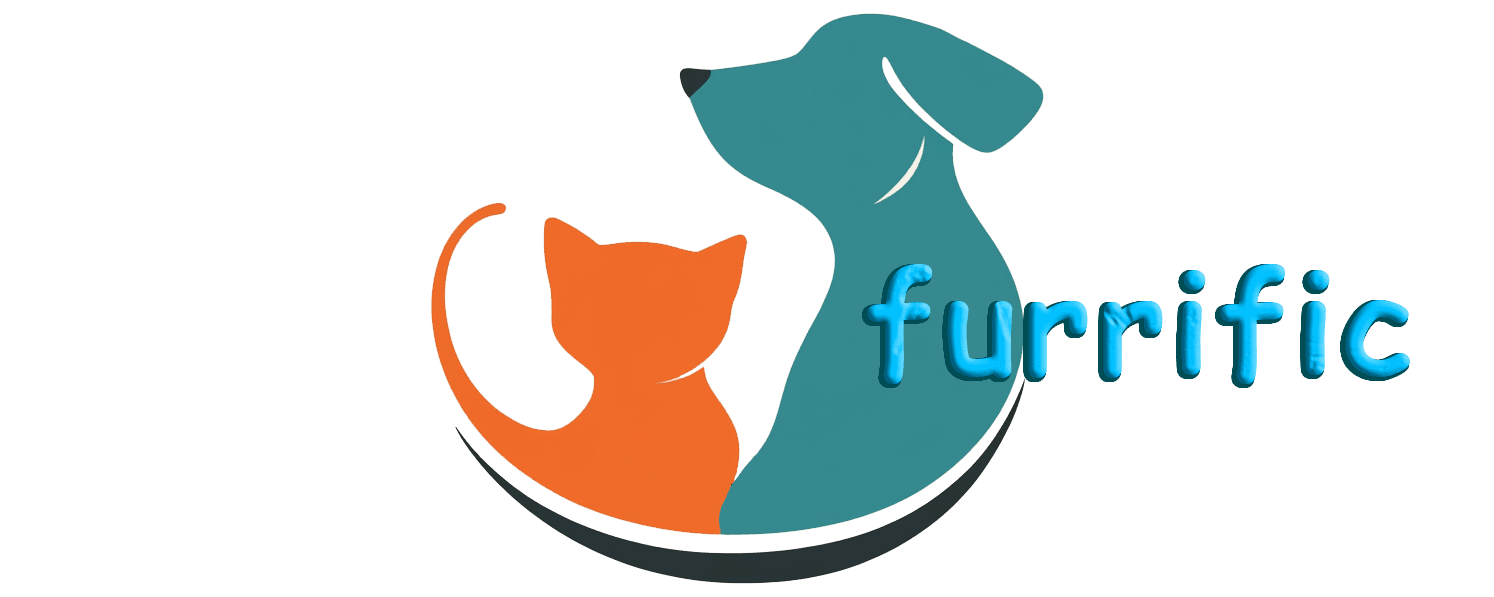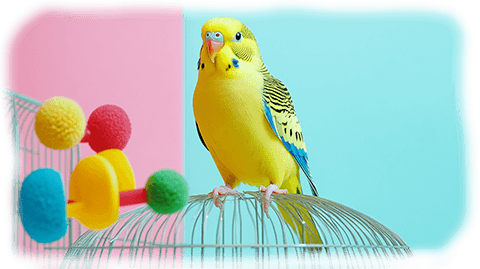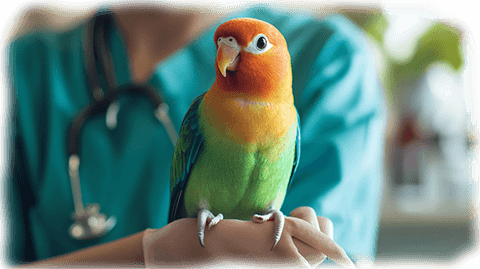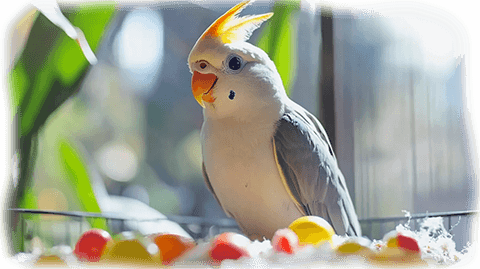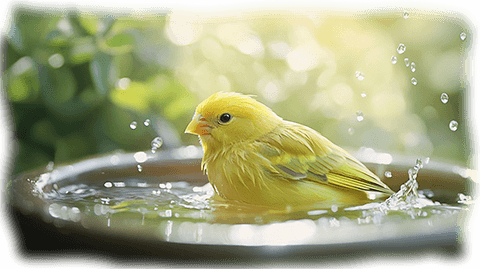Finch Health: Keeping Your Finch Happy and Healthy
Finches are small, active birds that can thrive in both indoor and outdoor environments. However, like all pets, they require proper care and attention to remain healthy. Understanding the common health issues finches face and knowing how to care for them properly is key to ensuring they live a long, happy life. Below are some detailed insights and helpful tips for keeping your finch in excellent health.
Common Finch Health Issues
Finches are generally hardy birds, but they are prone to certain health problems, many of which are preventable with the right care. Here are the most common issues finches face:
- Respiratory Infections – Finches are sensitive to drafts, dust, and ammonia buildup in their cages. Respiratory infections are common and can be fatal if left untreated.
- Mites and Lice – Finches can suffer from external parasites like mites and lice, which irritate their skin and feathers.
- Bumblefoot – This condition is caused by unsanitary perches or cage floors and leads to painful sores on the bird’s feet.
- Egg Binding – Female finches are at risk of egg binding, a condition where an egg gets stuck in the reproductive tract, which can be life-threatening without quick intervention.
- Obesity – Overfeeding, especially with seeds, can lead to obesity and related health problems like fatty liver disease.
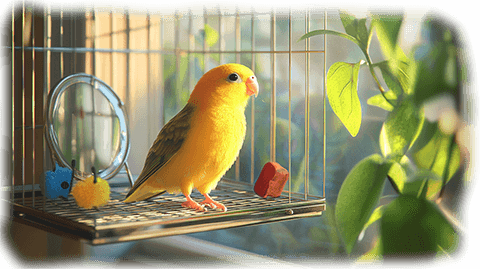
Signs of an Unhealthy Finch
Recognizing the early signs of illness in finches is important for timely treatment. Watch for these symptoms:
- Labored breathing or tail bobbing when at rest
- Lethargy – If your finch is less active than usual or is sitting on the cage floor
- Fluffed feathers – A finch that stays fluffed up for long periods may be ill
- Discharge from the eyes, nostrils, or beak
- Loss of appetite or refusal to eat or drink
- Weight loss or a noticeable drop in body condition
- Changes in droppings – Watch for color or consistency changes in feces
If you notice any of these symptoms, it’s essential to take your finch to an avian vet as soon as possible for diagnosis and treatment.
Preventive Care for Finch Health
Preventive care is crucial in keeping your finch healthy. Here are some key tips to ensure your finch stays in top condition:
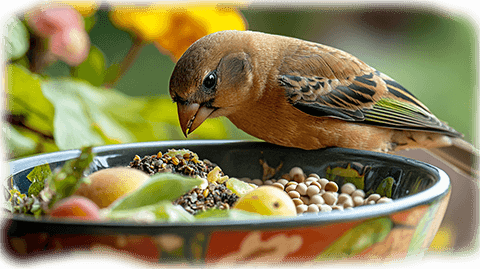
- Clean Cage Environment – Ensure the cage is cleaned regularly (Amazon affiliate link) to prevent the buildup of bacteria, dust, and feces. Clean the food and water dishes daily.
- Proper Nutrition – Finches require a varied diet of seeds, fresh fruits, vegetables, and specially formulated finch pellets. Avoid over-reliance on seeds, which can lead to obesity. (Amazon affiliate link)
- Clean Water – Always provide fresh water for your finches. Water should be changed daily, and water dishes should be cleaned to prevent bacterial growth.
- Perches – Use a variety of perch sizes and textures to keep your finch’s feet healthy and prevent bumblefoot. Replace worn or dirty perches regularly. (Amazon affiliate link)
- Exercise – Allow your finches plenty of space to fly within their cage or aviary. Finches are active birds and need ample room to move to stay healthy.
- Avoid Drafts – Keep the cage away from windows or air conditioning vents to protect your finch from respiratory issues.
- Regular Health Checkups – Schedule regular visits to an avian vet to ensure your finch is in good health. Early detection of problems is key to successful treatment.
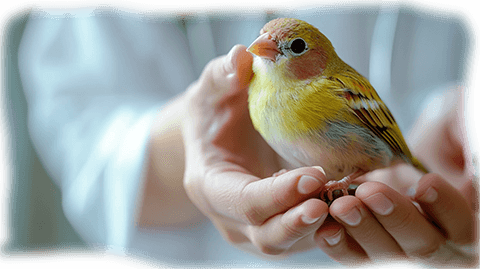
Finch Diet and Nutrition Tips
Providing a well-balanced diet is one of the best ways to ensure your finch remains healthy. Here are some tips for feeding your finch properly:
- Seed Variety – While seeds should be a part of your finch’s diet, offering a variety of seeds (like millet, canary seed, and niger seed) ensures they get different nutrients.
- Finch Pellets – Incorporate high-quality finch pellets into their diet. These are specially formulated to provide the vitamins and minerals seeds lack.
- Fresh Fruits and Vegetables – Offer fresh, finely chopped fruits and vegetables, such as apples, carrots, broccoli, and spinach. Avoid avocados, which are toxic to birds.
- Cuttlefish Bone – Provide a cuttlefish bone or mineral block to help your finch maintain healthy calcium levels, which are essential for egg-laying females.
- Limit Treats – Limit high-fat treats like sunflower seeds and nuts, which can lead to obesity.
Maintaining Good Finch Mental Health
Finches are social birds and can become stressed or anxious if they are isolated or in an unsuitable environment. Here’s how to keep your finch mentally stimulated and content:
- Provide Companionship – Finches are flock animals and prefer to live with other finches. Consider keeping at least two finches together, as they thrive on social interaction.
- Enrichment – Add toys, swings, and mirrors to their cage for mental stimulation. Finches also enjoy exploring new perches and environments. (Amazon affiliate link)
- Create a Calm Environment – Keep the cage in a quiet room away from loud noises or constant disturbances. A stressed finch can become ill more easily.
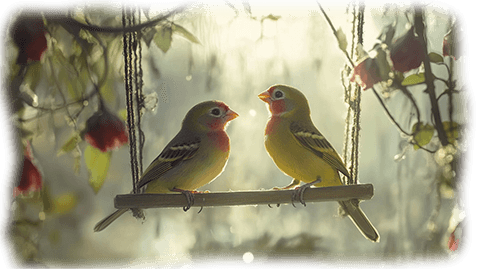
When to Visit the Vet
Taking preventive action and recognizing early signs of illness will help ensure your finch stays healthy. However, it’s important to know when your bird needs veterinary care. Consult an avian vet if you notice:
- Breathing difficulties such as labored breathing or wheezing
- Lethargy or a significant drop in activity levels
- Fluffed-up feathers for long periods
- Loss of appetite or refusal to eat or drink
- Swollen or injured feet (signs of bumblefoot)
- Egg binding symptoms, such as straining without laying an egg or sitting on the cage floor
By staying vigilant and providing the right care, you can help your finch live a long and healthy life. Regular vet checkups, a clean environment, and a balanced diet are key to preventing most health issues.
Further reading: “Finches: Finch Bird Types, Care, Where to Buy, Temperament, Health, Breeding, Feeding, and Much More!” (Amazon affiliate link) by Lolly Brown.
Affiliate Disclosure
This post may contain affiliate links, which means I earn from purchases made through links. Please see the privacy policy page for more details.
